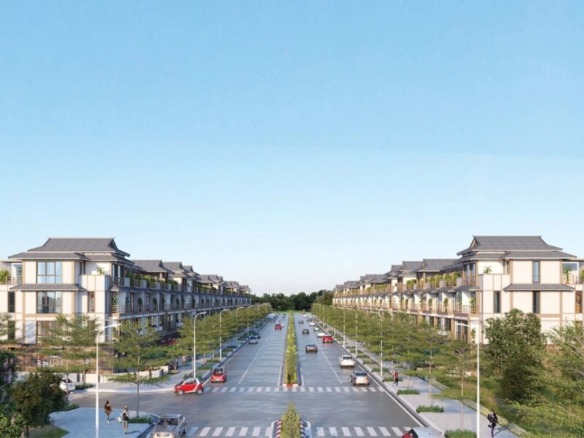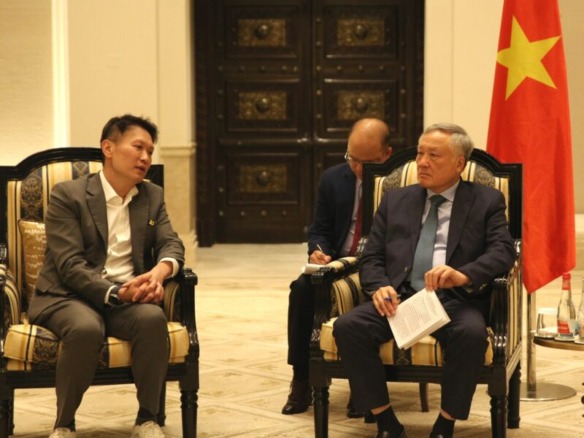Contents
Introduction to Vietnam’s Real Estate Boom
Vietnam’s real estate market is experiencing a surge in foreign direct investment (FDI), particularly from ASEAN nations. In 2025, the country continues to cement its position as a prime destination for property investment, driven by robust economic growth and strategic geographic advantages. According to Savills Hanoi, ASEAN investors, especially from Singapore, Malaysia, and Thailand, have poured $16.6 billion into 97 projects, representing 30.4% of total ASEAN FDI in Vietnam. This article explores why Vietnam real estate is a magnet for ASEAN capital and what it means for international investors.
Why ASEAN Investors Choose Vietnam Real Estate
Several factors make Vietnam an attractive hub for ASEAN investment in real estate. The country’s stable economic growth, averaging 6-7% annually, creates a fertile environment for property development World Bank. Additionally, Vietnam’s strategic location within ASEAN facilitates trade and connectivity, enhancing its appeal. Vietnam’s economic growth
-
Economic Stability: Vietnam’s GDP growth outpaces many regional peers, ensuring investor confidence.
-
Urbanization Trends: Rapid urban expansion, particularly in Hanoi and Ho Chi Minh City, drives demand for residential and commercial properties.
-
Government Support: Policies like streamlined licensing and tax incentives bolster foreign investment Vietnam Government Portal.
These elements collectively position Vietnam real estate as a high-return opportunity for ASEAN investors.
Key Sectors Attracting ASEAN Capital
ASEAN investment spans multiple real estate segments, reflecting Vietnam’s diverse market opportunities. Notably, industrial, residential, retail, and hospitality sectors are seeing significant inflows.
Industrial Real Estate
Industrial parks are a focal point, with Singaporean firms like Mapletree and Sembcorp leading investments. In 2025, Vietnam expects 15,200 hectares of new industrial land, with rental rates projected to rise 4-8% annually in the North Savills. This growth aligns with Vietnam’s role in global supply chains, especially in electronics and manufacturing.
Residential and Retail Developments
Residential projects, such as Vinhomes Royal Island in Hai Phong, attract ASEAN capital due to high demand for premium housing. Retail developments, including Vincom Mega Mall, also draw investors seeking stable rental yields. Malaysia’s Gamuda Land and Thailand’s Central Group are active in these segments, leveraging Vietnam’s growing middle class.
Challenges in Vietnam’s Real Estate Market
Despite its allure, Vietnam’s real estate market faces hurdles that could temper ASEAN investment. Regulatory complexities and land ownership restrictions pose challenges. For instance, foreign investors are limited to 50-year leaseholds, which may deter some Wikipedia: Land Law in Vietnam. Additionally, administrative delays and varying transparency levels across regions can complicate deals.
However, ongoing reforms, such as simplified approval processes, are addressing these issues. Experts like Nguyễn Lê Dung from Savills Hanoi predict that improved legal frameworks will further boost ASEAN capital inflows by 2030.
Opportunities for International Investors
For global investors eyeing Vietnam real estate, ASEAN’s success offers valuable insights. The market’s high growth potential, coupled with government reforms, creates a compelling case for entry. Key opportunities include:
-
Joint Ventures: Partnering with ASEAN firms like CapitaLand provides access to local expertise.
-
Emerging Cities: Beyond Hanoi and Ho Chi Minh City, cities like Da Nang and Hai Phong offer untapped potential.
-
Sustainable Projects: Green buildings and eco-friendly developments are gaining traction, aligning with global trends.
By leveraging these opportunities, international investors can capitalize on Vietnam’s dynamic property market.
Future Outlook for Vietnam Real Estate
Looking ahead, Vietnam real estate is poised for sustained growth. Experts forecast that ASEAN investment will continue to drive urban modernization, particularly in smart cities and sustainable developments. With infrastructure upgrades, such as the Hanoi-Hai Phong expressway, connectivity is improving, further attracting capital. By 2030, Vietnam aims to add 6 million square meters of industrial space, reinforcing its position as a regional investment hub.
For foreign investors, staying informed about regulatory changes and partnering with experienced local firms will be key to success. Vietnam’s real estate market, fueled by ASEAN capital, is set to shape the region’s urban future.
Ready to start your journey in Vietnam? Whether you’re seeking seamless Migration Services, visa, a work permit, or Real Estate Services such buyer agents, management, development. Our expert team at Migration and Investment Link is here to guide you every step of the way. Don’t miss out—leave your details now for A FREE CONSULTATION and let us turn your Vietnam dreams into reality!





Join The Discussion